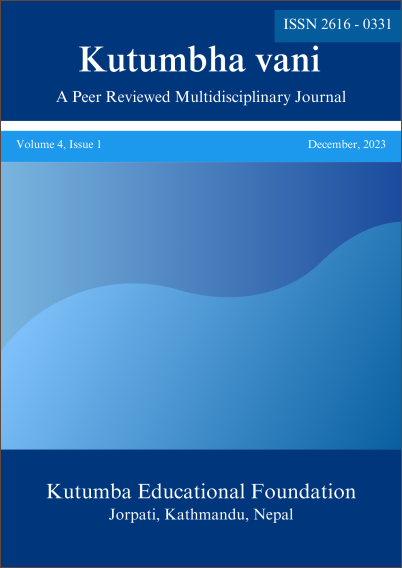Socio-Economic Status of Family Wellbeing in Belauri, Kanchanpur, Nepal
DOI:
https://doi.org/10.3126/kv.v4i1.73926Keywords:
Socio-economic status, Family wellbeing, Poverty, Belauri MunicipalityAbstract
This study searches family wellbeing as a multidimensional indicator of societal progress, focusing on Belauri Municipality, Nepal. The analysis examines socio-economic determinants, including income, education, employment, and healthcare, highlighting barriers faced by families in poverty. Belauri's reliance on agriculture and limited infrastructure exacerbate vulnerabilities, perpetuating inequality. By leveraging frameworks like the Family Stress Model and Sen’s Capability Approach, the research identifies risk and protective factors, offering insights to guide policies for poverty alleviation and sustainable development in rural-urban transitional contexts. A cross-sectional design with multi-stage cluster sampling highlighting disparities across income, education, healthcare access, and living conditions. This study explores the socioeconomic factors shaping family wellbeing in Belauri Municipality, Nepal. Data from 525 households across 10 wards highlights disparities in income, employment, education, and healthcare access. The findings reveal significant poverty concentrations in Wards 5, 9, and 10, with daily wages as the primary income for the Very Poor (50.9%). Family size and type, housing conditions, and land ownership correlate with poverty levels, emphasizing systemic inequalities. Nutritional patterns reveal limited protein access among poorer households, while loan dependency is higher among the Very Poor. The study underscores the need for integrated, targeted interventions to address poverty, enhance income stability, improve living conditions, and promote access to education and healthcare for sustainable development.




